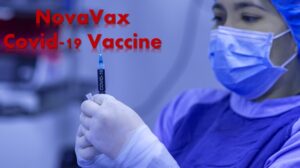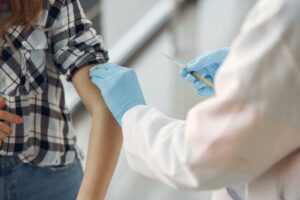Sputnik V vaccine: science and clinical development

Dr. Juni Banerjee. Neucrad Health Desk, February 9, 2021

The Phase-III trial of Russia’s Sputnik V vaccine revealed around 92% efficacy against Covid-19. The results for its trial has been published in the Lancet journal. This vaccine has found both safe and effective in providing complete protection against hospitalisation and death.
Of note, initially Sputnik V faced some controversy when Russia in August 2020 granted its regulatory go-ahead and mass vaccinations without unveiling its Phase-III trial results. However, with the recent published late-stage data, Sputnik V have proved to be in par with the other leading approved vaccines viz. Pfizer, Oxford/AstraZeneca, Moderna and Janssen.
The Different Working mechanism for Sputnik V:
Human adenoviruses-based vaccines safety has been reported by more than 75 international peer-reviewed publications and more than 250 clinical trials conducted over the past few decades. Adenovirus vectors are genetically modified viruses that cannot be reproduced in human body and are widely used for regular flu.
On one hand, Sputnik V works similarly to the Oxford/AstraZeneca jab (developed in the UK) and the Janssen vaccine (developed in Belgium) i.e., it utilizes adenovirus vectors for developing the vaccine. It is to be noted that in all these cases, the vaccine is actually not the real but it is source of genetic information about part of the outer protein coat called “spikes”. Hence there are no risks of getting infected as a result of such vaccinations. Following vaccination, the body produces antibodies against coronavirus and prime the host’s immune system to fight off similar real threats of any future coronavirus exposures.
However, unlike the other similar vaccines, the Sputnik V vaccine uses two different adenovirus serotypes:
- adenovirus 26 (Ad26) for its 1st dose
- adenovirus 5 (Ad5) for its 2nd dose.
Both the doses given 21 days apart target the coronavirus’s distinctive “spike”. Interestingly, the idea behind using 2 different adenovirus serotypes as vectors is that, any pre-existing immunity to the adenovirus is supposedly reduce the 2nd dose’s efficacy and hence the overall vaccine’s efficacy. On the other hand, using 2 different formulas of the adenovirus might boost the immune system even more.
Sputnik V is not only easy to store but also to transport because of its required storage temperature in between 2-8 C degrees.
Details about Sputnik V’s Phase-III Study and Vaccination:
The Phase-III trial for Sputnik V was carried between 7th September and 24th November, 2020 involving 20,000 participants. The trial was specifically carried out in Moscow and at 25 sites accredited by the Health Ministry for the conduct of clinical research. Out of the total 20,000 participants, about 15,000 received Sputnik V while the rest ~5000 received the placebo. Following 21 days after the 1st dose, 16 participants from the vaccinated group and 62 from the placebo group were COVID-19 positive. The result analysis of which translates to 91.6% efficacy for Sputnik V.
Interestingly, the efficacy against the severity of Covid-19 increased to 100% following the 2nd dose administration. Fortunately, there were no adverse effects and deaths being reported so far, but only some mild side-effects following Sputnik V vaccination. Regarding the current vaccination program going on around the globe, apart from Russia, Sputnik V have been approved to be used in 16 countries so far including Hungary, Argentina, Palestinian territories, Venezuela, UAE and Iran.
The late-stage trial of the vaccine is ongoing and the aim is to recruit at least 40,000 people. The results so far, in half that number, show that three-quarters received the vaccine. The remainder received a placebo. No serious adverse events were associated with the vaccine, and most reported side-effects were mild, researchers wrote in The Lancet.
Conclusion:
Therefore, Sputnik V has joined in the team of the vaccines involved in eradicating the pandemic from the world. In a comment published alongside the Lancet paper, Profs Ian Jones and Polly Roy said that Sputnik V has not only proven its effectivity in all age-groups but also its ability to reduce the severity of Covid-19 disease on 1st dose itself, whihc is particularly encouraging because of its limited supply.
Importantly, the Article’s authors from the Lancet paper pointed out that the analysis only included only symptomatic cases of COVID-19, and further work is required to understand if it can stop the asymptomatic cases too!

References:
- https://sputnikvaccine.com/
- Calina D, Docea AO, Petrakis D, Egorov AM, Ishmukhametov AA, Gabibov AG, Shtilman MI, Kostoff R, Carvalho F, Vinceti M, Spandidos DA, Tsatsakis A. Towards effective COVID‑19 vaccines: Updates, perspectives and challenges (Review). Int J Mol Med. 2020 Jul;46(1):3-16. doi: 10.3892/ijmm.2020.4596. Epub 2020 May 6. PMID: 32377694; PMCID: PMC7255458.
- https://www.bbc.com/news/world-europe-55198166
- Bucci E, Andreev K, Björkman A, et al. Safety and efficacy of the Russian COVID-19 vaccine: more information needed. Lancet. 2020;396(10256):e53. doi:10.1016/S0140-6736(20)31960-7
- https://www.thelancet.com/journals/lanres/article/PIIS2213-2600(20)30402-1/fulltext








